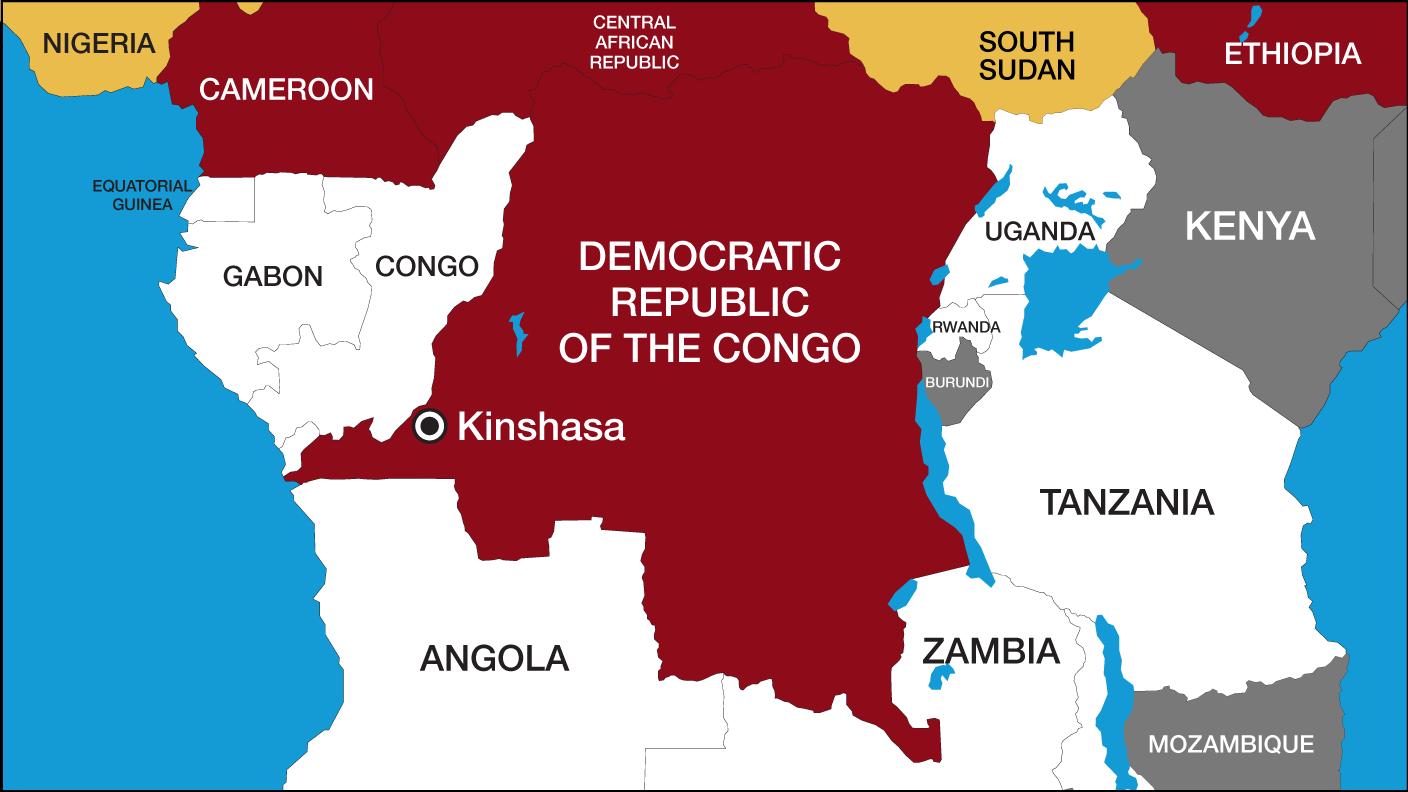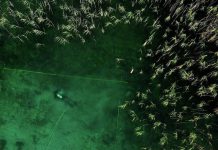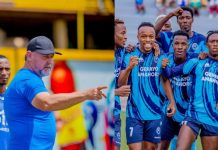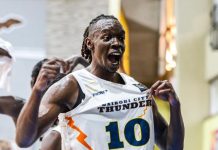Africa-Press – Rwanda. Congolese armed groups that participated in the just concluded first phase of dialogues in Nairobi aimed at finding lasting solutions to the insecurity in their country’s east pinpointed the presence and operations of foreign militia forces as a threat to peace in the region.
It is for this reason, a related statement seen by The New Times indicates, these Congolese groups “take up arms for self-defence.”
As noted, FDLR, ADF, and the Résistance pour un État de droit, or RED-Tabara, militia groups are “the major groups mentioned” by the representatives of the more than 30 armed groups that attended the just concluded inter-DR Congo peace dialogue meetings in Nairobi.
The negative forces in the vast natural-resource rich country include those of Rwandan origin, especially FDLR, which sprouted from forces of the defeated genocidal regime.
The latter, after defeat in 1994, crossed into DR Congo, from Rwanda, after participating in the slaughter of more than a million people during the 1994 Genocide against the Tutsi in Rwanda.
For nearly three decades, the FDLR – and its splinter factions – has plundered, killed and raped people in North Kivu and South Kivu Provinces, with impunity.
Kinshasa has on occasions allowed Rwandan forces in to track and neutralize the group but once the Rwandans pulled out, the militia’s forces would again regroup and carry on with their crimes despite the presence there of one of the largest UN peacekeeping missions in the world, MONUSCO.
The Allied Democratic Forces (ADF), or Madina at Tauheed wal Mujahedeen (MTM) militia group, on the other hand, is a group of Ugandan origin that is equally destructive. In March 2021, the US listed it as a terrorist group that pledged allegiance to the Islamic State (IS). It is responsible for many attacks across North Kivu and Ituri Provinces.
Active in the DR Congo since the mid-1990s, it has its main camps in the Beni territory of eastern DR Congo.
In March 2021, the US State Department noted that it is responsible for numerous attacks in the provinces of North Kivu and Ituri.
In December 2021, Uganda sent more than 1,000 soldiers to fight with the Congolese army against the ADF.
According to latest reports, some analysts argue that while the Ugandan and Congolese armies have destroyed about half a dozen ADF camps and captured a few of the group’s high-profile leaders, they have not stopped its killing machine, and the operation cannot be called a success at this point.
Burundi’s RED-Tabara militia, on the other hand, set up a rear base in eastern DR Congo in 2015 and was able to launch several attacks on Burundi territory.
In July 2021, Rwanda extradited 19 of its combatants who illegally crossed from Burundi to Rwanda on September 29, 2020. The combatants, according to Kigali, were apprehended while crossing into Rwanda along the border stretch in Nyungwe Forest, Ruheru Sector of Nyaruguru District.
The latest regional initiative which is showing determination to end conflict in the eastern DR Congo is an outcome of the first and second East African Community (EAC) Heads of State conclaves on the peace and security situation in DR Congo under the chairmanship of Kenyan President Uhuru Kenyatta held on April 8 and 21, respectively, at State House Nairobi.
During the second meeting, Presidents Félix Tshisekedi of DR Congo, Evariste Ndayishimiye of Burundi, Kenyatta and Yoweri Museveni of Uganda, and Rwanda’s foreign minister Dr Vincent Biruta, agreed to the deployment of a regional force to contain armed groups in DR Congo.
The first conclave was held on April 8, soon after Tshisekedi signed the Treaty of accession by his country to join the EAC.
“However, in a quick rejoinder, a specific group called the CMC Nyatura sought to distinguish the stereotyping of the Hutu Community from the DRC and confusing it with the Hutu from Rwanda and who are largely supportive of the activities of the FDLR,” adds the statement released on day six, April 27, of the inter-Congolese dialogue facilitated by the Kenyan government.
The Coalition des mouvements pour le changement (CMC)-Nyatura faction is one of the Congolese militia groups operating in Masisi and Rutshuru territories of North Kivu Province.
While numerous Nyatura groups claim to protect the Congolese Hutu population from Mai-Mai militias or the Congolese army, other Nyatura groups are allied to the FDLR, further complicating the situation in a country where more than 130 militia groups are active.
The CMC-Nyatura faction was represented in the Nairobi dialogues.
On April 27, other common issues raised by the groups include concern that most of them signed agreements with local or national government authorities and are in the process of implementing them but there are pending issues around implementation.
They also raised confidence building measures such as release of political prisoners, hinting that amnesty to their leaders and arbitrary arrests threaten the peace process.
Rwanda on Wednesday, April 27, called upon the UN Security Council to support ongoing regional efforts which complement the existing peace and security framework to build sustainable peace in the great lakes region. Amb. Claver Gatete, the Permanent Representative of Rwanda to the UN spoke during the Security Council briefing on implementation of the peace and security framework in the great lakes region.
He noted that Rwanda is encouraged by the measures taken during the second regional Heads of State conclave on DR Congo hosted by EAC Chairperson, President Uhuru Kenyatta of Kenya, on April 21, three weeks after DR Congo officially joined the now seven-member regional economic bloc.
In the past few days, there was optimism that Congolese armed groups will be dedicated to efforts being made towards finding a durable solution.
Good progress is being made and the discussions are honest and frank among the more than 80 delegates in attendance, Amb. Isaiya Kabira, the Director General in charge of international conferences, media events and communications in Kenya’s Ministry of Foreign Affairs, said on Wednesday, April 27.
For More News And Analysis About Rwanda Follow Africa-Press






